Best Credit Cards of 2025.
Make it simple, choose the best credit card and be 1st, Financially.
Key Takeaways
- Best Credit Cards can be a powerful tool in achieving your financial goals if you’re looking to earn lucrative rewards, save on interest rates, or build your credit score.
- They are many credit cards. Choosing the best depends on your needs.
Summary of The Best Credit Cards of 2025
Credit Card |
Intro offer |
Annual fee |
Rewards rate |
1Financially Ratings |
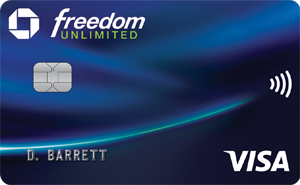 Chase Freedom Unlimited® |
Up to $300 On Chase’s Website |
$0 |
1.5% – 5% cashback |
5.0/5 |
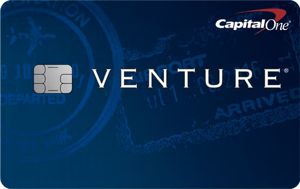 Capital One Venture Rewards Credit Card |
75,000 Milles on Capital One website |
$95 |
2x-5x Milles |
4.7/5 |
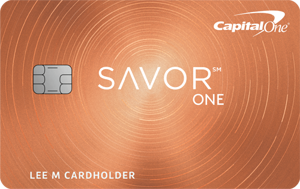 Capital One SavorOne Cash Rewards Credit Card |
$200 |
$0 |
1% – 8% cashback |
5.0/5 |
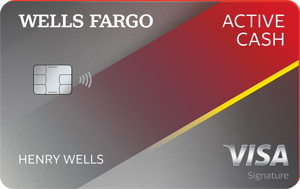 Wells Fargo Active Cash Card |
$200 on Wells Fargo’s website |
$0 |
2% cashback |
5.0/5 |
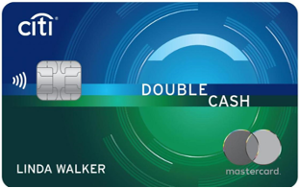 Citi Double Cash Card |
$200 on citibank’s website |
$0 |
1% – 5% cashback |
4.9/5 |
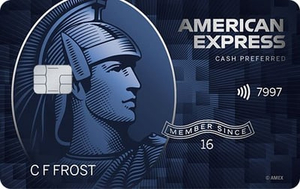 Blue Cash Preferred Card from American Express |
$250 on American Express’ website |
$0 intro annual fee for the first year, then $95. |
1% – 6% cashback |
4.8/5 |
 Chase Sapphire Preferred Card |
60,000 points on chase’s website |
$95 |
1x – 5x points |
5.0/5 |
1financially’s Picks The Best Credit Cards of 2025
Capital One Savor Cash Rewards Credit Card

Intro Offer
- $200 cash bonus once you spend $500 on purchases in first 3 months.
- Unlimited 3% cash back at grocery stores excluding superstores.
- 8% cash back on Capital One Entertainment purchases.
APR: 19.24% – 29.24% Variable
Credit Score Needed: Excellent or Good, 670-850
Pros
- No foreign transaction fee.
- No annual fee.
- Flexible cash back rewards.
- No Penalty APR
Cons
- –
Features
- Flexible cash back rewards.
- All Pros Below.
Why it’s 1financially’s pick ?
The Capital One Savor Cash Rewards Credit Card is a top choice for those seeking a no-annual-fee card with excellent rewards. It offers unlimited 3% cash back on dining, entertainment, popular streaming services, and grocery stores (excluding superstores like Walmart® and Target®).
Additionally, it provides a $200 cash back welcome bonus after spending $500 within the first three months. With a 15-month 0% introductory APR on purchases and balance transfers, followed by a variable rate of 19.24% to 29.24%, the card is great for managing large purchases or consolidating debt. Plus, it has no foreign transaction fees, making it ideal for travelers.
Chase Freedom Unlimited®
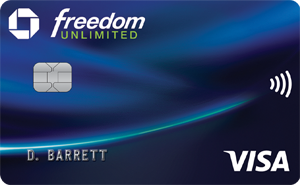
Intro Offer
- 0% Intro APR for 15 months from account opening on purchases and balance transfers.
- 1.5% cash back on things you buy with up to $20,000 spent in the first year and then, 5% cash back on travel purchased through Chase Travel℠, 3% cash back on drugstore purchases and dining at restaurants, and unlimited 1.5% cash back on all other purchases.
- 6.5% cash back on travel purchased through Chase Travel℠.
APR: 19.49% – 28.24% Variable
Credit Score Needed: Excellent or Good, 670-850
Pros
- No minimum to redeem for cash back.
- No annual fee.
- Flexible cash back rewards.
Cons
- Fee : 3% of each transaction in U.S. dollars for Foreign Transaction.
- Up to 29.99% APR Penalty.
Features
- Flexible cash back rewards.
- All Pros Below.
Why it’s 1financially’s pick ?
This card simplifies earning cash back with several bonus categories and offers a 0% introductory APR on purchases and balance transfers for 15 months. After the promotional period, a variable APR ranging from 19.49% to 28.24% applies.
Capital One Venture Rewards Credit Card

Intro Offer
- 2x – 5x (Miles) Rewards rate.
- Earn one-time bonus of 75,000 miles once you spend $4,000 on purchases within 3 months.
- High regular APR.
APR: 19.49% – 28.24% Variable
Credit Score Needed: Excellent or Good, 670-850
Pros
- Earn everyday unlimited 2X miles on every purchase
- Up to a $120 credit for Global Entry or TSA PreCheck®
- Large travel loyalty programs.
- Flexible cash back rewards.
Cons
- $95 annual fee.
- Requires good/excellent credit.
Features
- Flexible cash back rewards.
- All Pros Below.
Why it’s 1financially’s pick ?
Earning cash back is effortless with this card’s multiple bonus categories, which also feature a 0% introductory APR on purchases and balance transfers for 15 months. After the intro period, a variable APR of 19.49% to 28.24% applies.
Chase Sapphire Preferred® Card

Intro Offer
- 1x – 5x (Miles) Rewards rate.
- Earn one-time bonus of 60,000 miles once you spend $4,000 on purchases within 3 months.
- Benefits of 5x on travel purchased through Chase Travel℠
- Benefits of 3x on dining, select streaming services and online groceries
- Benefits of 2x on all other travel purchases
- Benefits of 1x on all other purchases, $50 Annual Chase Travel Hotel Credit, and more.
- High regular APR.
APR: 20.49% – 27.49% Variable
Credit Score Needed: Excellent or Good, 670-850
Pros
- 25 percent redemption value boost via Chase Travel.
- Large travel loyalty programs.
- Flexible cash back rewards.
Cons
- $95 annual fee.
- Card’s grocery rewards rate only applies to eligible online grocery purchases.
- Requires good/excellent credit.
Features
- Flexible cash back rewards.
- All Pros Below.
Why it’s 1financially’s pick ?
This card is an excellent choice for occasional travelers seeking flexibility, offering great rewards on both travel and everyday purchases, along with outstanding travel protections and other valuable perks. Its impressive redemption options, ability to pair with other Chase cards, and access to transfer partners provide exceptional long-term value.
Additionally, the generous welcome bonus enhances its short-term rewards appeal.
Wells Fargo

Intro Offer
- 21 months 0% intro APR from account opening on purchases and qualifying balance transfers.
- 17.24%, 23.74%, or 28.99% Variable APR balance transfers made within 120 days qualify for the intro rate, BT fee of 5%, min: $5.
- Up to $600 of cell phone protection against damage or theft.
APR: 17.24%, 23.74%, or 28.99%
Credit Score Needed: Excellent or Good, 670-850
Pros
- Best 0% introductory APR credit cards ( 21 months)
- No annual fee.
- 5% Balance Transfer Fee with minimum of $5.
- Flexible cash back rewards.
Cons
- Fee : 3% of each transaction in U.S. dollars for Foreign Transaction.
- Up to 29.99% APR Penalty.
Features
- Flexible cash back rewards.
- All Pros Below.
Why it’s 1financially’s pick ?
The Wells Fargo Reflect card provides an introductory 0% APR for 21 months from account opening, after which a variable APR of 17.24%, 23.74%, or 28.99% applies. With no annual fee, the card also allows balance transfers at the promotional APR within the first 120 days, subject to a 5% fee (minimum $5).
Discover it® Cash Back

Intro Offer
- Unlimited Cashback Match for all new cardmembers-only from Discover.
- Earn 5% cash back on everyday purchases at different places you shop each quarter + unlimited 1% cash back on all other purchases.
- 0% intro APR for 15 months on purchases.
APR: 18.24% – 27.24% Variable
Credit Score Needed: Excellent or Good, 670-850.
Pros
- Redeem Rewards for cash at any time.
- No Foreign Transaction Fee.
- $0 Annual Fee
Cons
- Fees: 3% intro balance transfer and up to 5% fee on future balance transfers.
- 18.24% to 27.24% Standard Variable Purchase APR applies after 15 months.
Features
- Earn Cash back on everyday purchases in different categories such as grocery stores, restaurants and gas stations, up to the quarterly maximum when you activate.
Why it’s 1financially’s pick ?
Enjoy a 0% introductory APR for 15 months on purchases and balance transfers, helping you save on interest. Once the intro period ends, a variable APR ranging from 18.24% to 27.24% will apply. Plus, Discover will match all the cash back you earn during your first year.
How Do Credit Cards Work?
A credit card lets you make purchases on credit with a grace period, usually between 21 and 25 days. If you pay off your balance within this period and by the due date, you won’t incur any interest.
Ever wondered what happens after you use your card? It’s quite intriguing and straightforward!
Here’s a quick rundown of what happens when you buy, say, a pair of shoes at your favorite store:
- You use your credit card to pay for the shoes, and your card details are sent to the store’s bank, known as the acquiring bank.
- The acquiring bank then seeks authorization for the payment from the credit card network (Visa, Mastercard, Discover, or American Express).
- Once the purchase is approved, the amount you spent reduces your available credit limit.
- The transaction appears on your credit card statement with a due date and the minimum payment required. If you pay the full amount by the due date, you avoid any interest charges.
How Credit Card Rewards Work?
Credit card rewards are designed to provide additional benefits for your everyday spending. When you use a credit card with a rewards program, you earn points, miles, or cashback based on the amount you spend.
Typically, for every dollar spent, you accumulate a set number of reward units. For example, a card might offer 1 point per dollar spent on all purchases, and potentially more points for specific categories like dining or travel. These rewards can then be redeemed in various ways, such as for statement credits, gift cards, travel bookings, or merchandise.
Some cards also offer sign-up bonuses or promotional offers that allow you to earn extra rewards if you meet certain spending thresholds within the first few months. The value of rewards varies by card and redemption option, but strategically using a rewards card can lead to significant savings or benefits over time.
What Is the Best Credit Card Issuer?
Many credit card issuers feature prominently on the U.S. News Best Credit Cards list. The ideal credit card for you will depend on factors such as your credit score and your interest in rewards. To gauge an issuer’s reputation, you can review its ratings on the Better Business Bureau and Trustpilot, and check the Consumer Financial Protection Bureau’s Consumer Complaint Database.
It’s important to differentiate between credit card issuers and credit card networks. Issuers are the companies that provide the cards, while networks handle the authorization and processing of payments. The major payment networks include Visa, Mastercard, Discover, and American Express. Notably, Discover and American Express serve as both credit card issuers and payment networks.